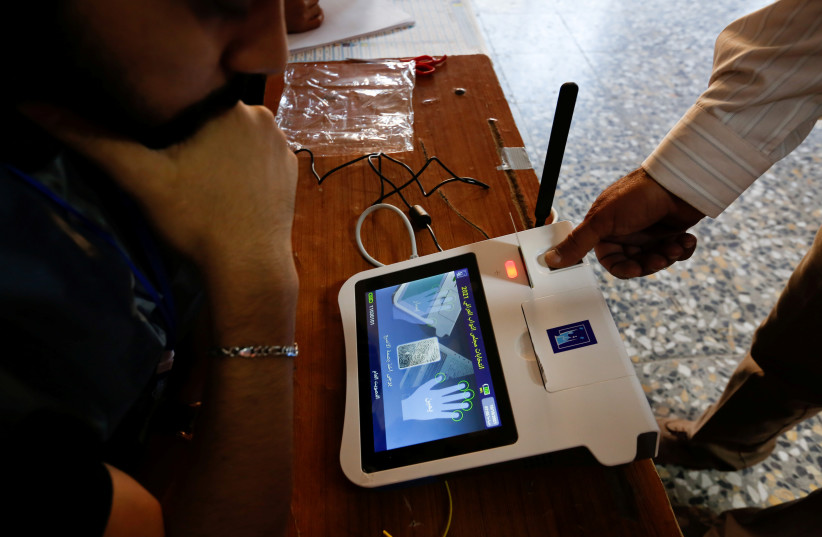Iraqi elections were held on Sunday, and turnout appears to have been historically low. While some estimates were at around 30%, final tallies appear to indicate close to 40%. Back in 2014, turnout was believed to be more than 60%, and it reached 44% in 2018.
For Israel, the Iraqi elections matter because Iran’s control of Iraq is made possible through the use of pro-Iranian militias in Iraq, which have a near stranglehold over the government, enabling them to transfer weapons to Syria and on to Hezbollah.
This means Iraq is a danger to the region by way of its being hollowed out and used as a missile and drone base for Iran. Insofar as an Iraqi government might emerge that is less inclined to be used by Iran, it can be a stabilizing influence. However, low turnout and the status quo may mean Iraq continues to be poor and unstable.
This is a sad day for Iraq because low turnout appears to cement the feeling among young people that they cannot change the country. In the wake of the 2018 elections, there was political chaos as the country had difficulty choosing a prime minister. Even when one was chosen, a series of protests in 2019 led to mass killings of demonstrators, and several more men failed to achieve a consensus for being prime minister. It fell to Mustafa al-Kadhimi to try to shore up Iraq in 2020.
The problems for Iraq are multilayered. The war against ISIS led to destruction of part of the country, as ISIS left in its wake ethnic cleansing and genocide. In addition, cities were badly damaged and some areas depopulated.
The war led to increased Iranian presence in Iraq through a network of militias called Hashd al-Shaabi, or the Popular Mobilization Forces. Those militias became an official paramilitary force in the wake of the war in 2018.

They were supposed to integrate into the regular security forces in 2019, but they have remained with their own commanders, largely forming a lawless part of the state apparatus. They are allowed to hide under state authority and maintain checkpoints, but they also stockpile their own arsenals.
Meanwhile, Iraqis have faced poverty and collapsing infrastructure as the government failed to capitalize on any kind of “peace dividend” from the end of the war. Anger over the infrastructure in a country that is sitting on a sea of oil led to protests in the fall of 2019. This coincided with the dismissal of a popular member of the security forces and the opening of the Syria-Iraq border, which enabled more Iranian weapons to flow to Syria from Iraq.
The context of the elections this year, therefore, comes after years of uncertainty. The militias are involved in war crimes, assassinations and kidnappings, such as the murder of Hisham al-Hashimi, a prominent Iraqi analyst and historian.
The impunity that greets the murderers of activists likely makes many young people apathetic and reluctant to participate. That militias could gun down hundreds of people in 2019, but no one was charged, illustrates that at least a third of Iraq is basically run as a militia state linked to Iran.
This is the Iranian model that extends across Iraq to Syria and Lebanon and Yemen as well as Hamas in Gaza. The region has allowed Iran to take over parts of various states and run them with proxy militias.
These militias are not just like large mafia gangs; they are also part of the government and security forces. They occupy the state like a multilayered cake – each layer playing its role.
This means the elections will likely cement in power the same groups as in the past. There will be Kurdish parties that get votes from the autonomous Kurdistan Region in the north, alongside pro-Iranian parties linked to the militias. Then there will be a party in parliament linked to Muqtada al-Sadr, a populist leader and Shia cleric.
The balancing act that any prime minister has to contend with means the central government will remain weak, and the militias will continue to control parts of the country.
Under Kadhimi, Iraq attempted to play a greater role in regional affairs, hosting delegations from Egypt, the Gulf, Turkey, Iran, Jordan and France. It has also sought to be part of the group of countries that want Syria reincorporated into the region.
This means Iraq has an important role to play. But it can’t play that role so long as the politics of the gun and Iran’s militias run wild.
